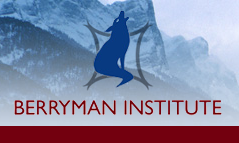Creative Commons License

This work is licensed under a Creative Commons Attribution 4.0 License.
Abstract
Contrary to rapid declines of many vulture (Accipitridae, Cathartidea) species worldwide, black vulture (Coragyps atratus) populations are increasing and expanding their range in North America. Vultures exhibit complex behaviors and can adapt to any human-dominated landscape or land use. These traits, combined with population growth and range expansion, have contributed to increased human–vulture conflicts. Our goal was to summarize the current status and trends in human–black vulture conflicts (hereafter human–vulture conflicts), review available management strategies, identify knowledge gaps, and provide recommendations to enhance management and understanding of this species and the associated conflicts. We found human–vulture conflicts are increasing in agriculture (livestock), private and public property (both personal and infrastructure-based), and threats to human health and safety. The greatest increases in conflicts were reported in agriculture and private and public property damage. Regarding livestock depredation, good progress has been made toward assessing producer perceptions of the conflicts, including estimates of economic damage and mitigation strategies, but a basic understanding of the underlying mechanism driving the conflict and advancing strategies to mitigate damage is lacking. For damaged property, little information is available regarding economic losses and perceptions of stakeholders who are experiencing the damage, and most of the tools recommended for mitigating this damage have not been rigorously evaluated. Regarding human health and safety, recent research quantifying flight behavior of black vultures has direct implications for reducing aircraft collision risks. However, it is unclear what factors influence roost site selection and the most effective means to leverage the sensory ecology of the species to mitigate risks. We identify additional knowledge gaps and research needs that if addressed could increase managers’ understanding of black vulture ecology and facilitate enhanced management of this species while simultaneously allowing for the species to provide valuable ecosystem services.
Recommended Citation
Kluever, Bryan M.; Pfeiffer, Morgan B.; Barras, Scott C.; Dunlap, Brett G.; and Humberg, Lee A.
(2020)
"Black Vulture Conflict and Management in the United States: Damage Trends, Management Overview, and Research Needs,"
Human–Wildlife Interactions: Vol. 14:
Iss.
3, Article 8.
DOI: https://doi.org/10.26077/9875-d38f
Available at:
https://digitalcommons.usu.edu/hwi/vol14/iss3/8
Included in
Agriculture Commons, Behavior and Ethology Commons, Biology Commons, Population Biology Commons




